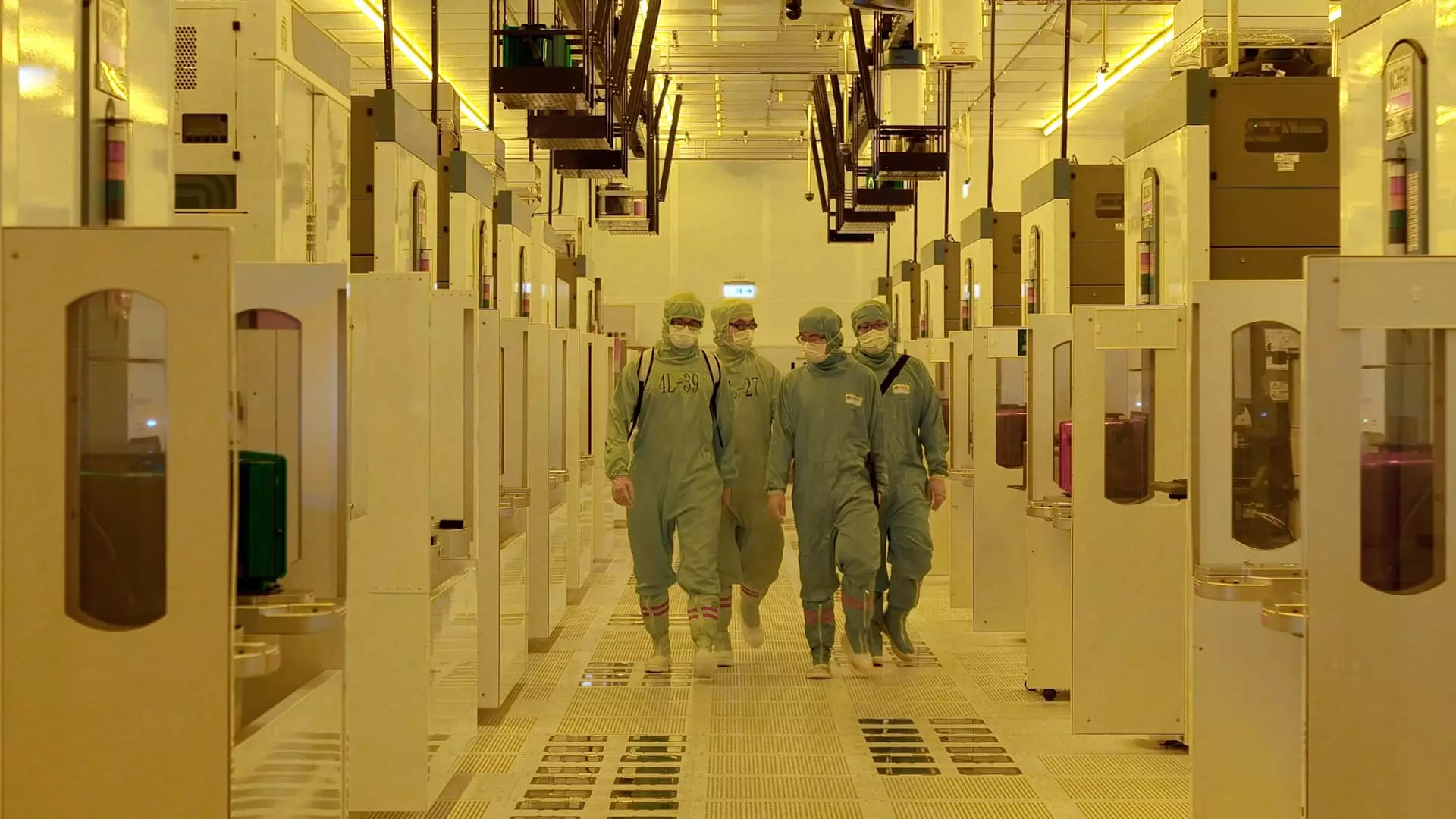Taiwan Semiconductor Manufacturing Co. (TSMC), often viewed as the pinnacle of technological prowess in the semiconductor industry, faces a stark reality: no fortress is impregnable. While the company proclaims a zero-tolerance policy towards trade secret leaks and emphasizes swift disciplinary actions, the repeated breaches highlight an unsettling truth—its leadership might be underestimating the intrinsic vulnerabilities lurking beneath its façade of control. In a sector where innovation equates to geopolitical power, TSMC’s reliance on robust monitoring mechanisms cannot mask the systemic risks posed by the industry’s highly competitive, secretive environment. The recurring pattern of alleged insider theft suggests that the industry’s fortress mentality is, at best, a fragile façade—one that can be breached by motivated insiders with access to some of the world’s most sensitive technological data.
Insider Threats: A Weak Spot in a Critical Supply Chain
The recent discovery of unauthorized activities involving potential trade secret leaks at TSMC is not merely a corporate scandal; it is a warning signal that exposes a foundation of vulnerabilities in critical infrastructure. Insider threats represent one of the most challenging risks facing high-tech giants, yet they tend to be underestimated or inadequately addressed. In a competitive environment where the stakes include national security and economic dominance, the potential for former employees or disgruntled insiders to compromise core IPs, especially in cutting-edge processes like 2-nanometer chip manufacturing, is a peril that cannot be ignored.
What makes this situation particularly volatile is the geopolitical tension simmering around Taiwan’s semiconductor leadership. If trade secrets related to TSMC’s advanced nodes fall into foreign hands—be it mainland China, Russia, or other strategic adversaries—the ramifications extend far beyond corporate loss. They threaten to upend the delicate balance of global power, where technological supremacy acts as a linchpin of influence. This episode underscores a crucial point: reliance on internal controls alone is insufficient. A comprehensive national strategy, incorporating transparency and international cooperation, must underpin efforts to safeguard these technologies from malicious actors.
Corporate Vulnerability in the Age of Geopolitical Competition
TSMC’s predicament exemplifies the broader vulnerability of leading-edge semiconductor firms operating in a high-stakes geopolitical chess game. As companies like TSMC, Samsung, and ASML push the boundaries of technological innovation, they do so in an environment rife with espionage, sabotage, and insider manipulation. The fact that previous incidents include attempts to transfer IP to mainland Chinese entities emphasizes the asymmetric risk posed by state-backed espionage campaigns. If the same corporate culture that claims to be vigilant also inadvertently fosters complacency—perhaps through process silos or insufficient oversight—the industry becomes a tempting target for intelligence services seeking to accelerate their own technological development covertly.
Moreover, the consequences of such vulnerabilities threaten global supply chains. The semiconductor industry has become a strategic battleground, with countries and corporations vying for dominance in critical technological areas. The leak or theft of next-generation chip secrets could skew the balance of power, granting strategic advantage to hostile nations. TSMC’s case, therefore, is a stark reminder that technological leadership is not solely about innovation; it requires unwavering commitment to security, transparency, and international cooperation—attributes that are often neglected in the race to stay ahead.
The Future of Innovation or the End of Trust?
As the industry grapples with the persistent threat of trade secret leaks, a key question arises: can these technological giants truly safeguard their crown jewels? The answer hinges on whether they recognize that technological dominance is not purely an engineering challenge but also a strategic and security challenge. The repeated breaches at TSMC and competitors reveal systemic weaknesses rooted in human factors, corporate cultures, and geopolitical pressures.
Yet, amidst these vulnerabilities lies an opportunity. Industry leaders must prioritize not just technological innovation but also comprehensive security protocols, including stricter insider vetting, improved data control, and international diplomatic efforts to establish norms against industrial espionage. Ironically, the more reliant these corporations become on cutting-edge technology, the more essential it is to build a resilient, transparent, and ethically grounded security culture—something that can outpace even the most determined malicious actors.
In the final analysis, the current incidents should serve as a wake-up call for a sector that has historically prided itself on technological superiority but has perhaps overlooked the foundational importance of security. In an era where technology equals power, TSMC’s current struggles symbolize more than corporate missteps; they herald an urgent necessity to rethink the very foundation of technological safeguarding at a national and global level.

